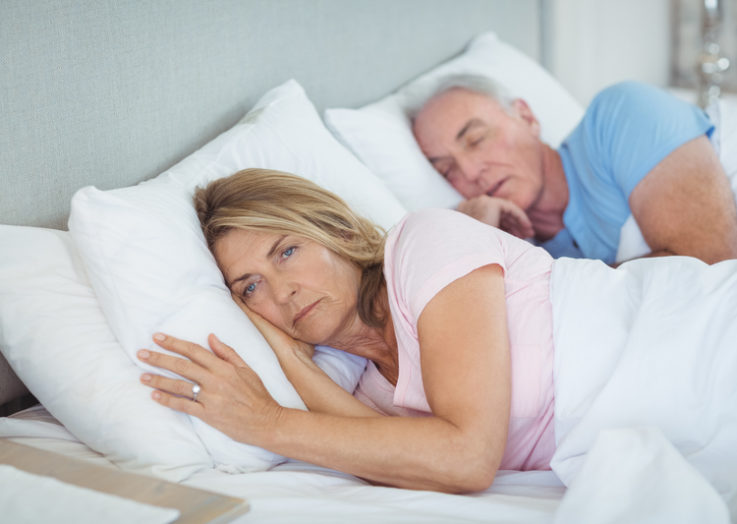Why worry about poor sleep hygiene? I mean, who needs a good night’s sleep anyway? Certainly not you. Sure, there are reports (and research) that sleep is necessary to:
- Reduce illness
- Maintain a healthy weight
- Reduce the risk of health problems like diabetes, heart disease, and depression
- Improve mood
- Reduce stress
- Think more clearly
- Perform better at work and school
- Get along better with others
- Make better decisions
- Avoid accidents and injuries
- Be more productive and efficient.
But you, you’re different. You don’t need a good night’s sleep; after all, there are tradeoffs. You are willing to give up some health, productivity, and brain power because you have things to do! Am I right?
So, forget all those suggestions about how to improve sleep. Here’s how to lose out on a good night’s sleep (those so-called sleep “benefits” are over-rated anyway, right?!).
Poor Sleep Hygiene: 9 Common Ways to Sabotage Your Sleep
Tired? Exhausted? Feeling like you don’t have any gas in the tank? Forget about it. You can sleep when you’re dead. It’s time to hustle and grind! Here are some poor sleep hygiene ideas to keep you awake (though not necessarily alert) longer:
1. Fight your circadian rhythm. Our bodies have a biological clock that is attuned to daylight. In other words, we get sleepy at night and stay alert during the day. To turn that around, avoid daylight during the day, especially during the first hour of the day. Then, surround yourself with artificial light throughout the evening and night, and take special care to make sure you’re getting plenty of blue light from your cell phone, laptop, TV, tablet, etc., late at night to make it more difficult to fall asleep. (And if you’re looking for more advanced options, travel into different time zones regularly or take on unnecessary shift work to keep your body guessing.)
2. Consume lots of stimulants—especially in the afternoon or evening. If it’s after 3:00 p.m.—or even later—go ahead and have another cup of caffeinated coffee, black tea, or soda, energy drink, chocolate, or any other vehicle of choice for stimulants. And don’t worry about drinking water—unless it’s caffeinated. Even if your body is telling you it wants to go to sleep, you’ll have a more difficult time drifting off.
3. Seek (di)stress. You already have too much to do, so now’s the time to put yourself under even more stress. And not the good kind that makes you excited and enthusiastic but the stuff that makes you feel anxious, preoccupied, or fearful and under greater physical and mental strain. That’ll keep you awake at night.
4. Have a cocktail (or 3). Done drinking your stimulants for the day? Wind down with some adult beverages. Sure, alcohol may seem to help you fall asleep faster, but you’ll be more likely to wake up throughout the night, as it can decrease the quality of the sleep you do get. (Other drugs and medicines can also have this effect.) There’s nothing like waking up at 3:00 a.m. with your heart pounding and all of your worries and fears filling your early morning hours…
5. Avoid routine. Some folks actually go to bed and wake up right around the same time each day. If you’re looking for poor sleep hygiene, you’ll definitely want to avoid doing so. Keep your body guessing to wreak havoc on your circadian rhythm.
6. Exercise at night. While working out in the morning, afternoon, or early evening can help you get a better night’s sleep, exercising right before bed—which raises body temperature, delays melatonin secretion, and stimulates the mind and body—can make sleep more elusive. Try that.
7. Get uncomfortable. The last thing you want is a dark, slightly cool, comfortable, quiet room to sleep in. Keep it overly hot (or cold), well-lit (especially with flashing lights from a busy street, or better yet, the TV), and noisy if you want to ward off a good night’s sleep. A loudly-snoring partner (or dog) or keeping the sound on the TV up can also be really handy tricks to disrupt sleep.
8. Avoid the great outdoors. Our bodies are powerfully influenced by natural light and dark cycles (e.g., bright sunlight during the day) and spending time outside can really help keep the circadian clock in rhythm. So, spending time outside should be avoided as much as possible. Instead, seek unnatural, flickering, or blue light. As an added bonus, you’ll also likely depress mood even more than from lack of sleep. Win-win… or is that lose-lose?
9. Eat a heavy meal before bed. Another great way to ensure a fitful night’s sleep is by eating a big meal late at night. In addition to light and exercise, food intake is another important cue for circadian rhythms. When you eat a large meal, your body will be busy digesting and you may even have heartburn, which is a great way to avoid sleep.
Poor Sleep Hygiene: Recap
With these tips, you’re sure to lose out on a lot of sleep, and you’ll be rewarded handsomely by feeling like crap; performing poorly in work, home, and family life; being constantly exhausted; struggling to manage your weight; increasing your risk of serious disease as well as accidents, and so much more!
Wait, that doesn’t sound right… or even fun…
If you are suffering from any of the above poor sleep hygiene habits and have been struggling with your sleep (or any of the ill effects mentioned), reverse the above tips to help you enjoy a better night’s sleep. And if it’s been a while since you got a good night’s sleep (of 7 to 9 hours), you may have accumulated some serious sleep debt—here’s how to catch up!









